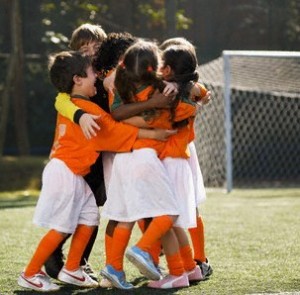 What is resilience: An Overview
What is resilience: An Overview
There are times when as parents, we may think that our children spend their daily lives being carefree and not worrying over anything. However, the demands of today’s society may actually ask our children to deal with certain concerns that can range from something as simple as adjusting to a new school environment to more complex situations such as those that involve bullying from their peers. If we add this to the notion that our children are still in the process of finding their place in the world, it is possible for their lives may not be as happy-go-lucky as we may assume. Despite this, our children can develop the capacity to adapt to adversities that they may encounter, and this capacity is known as resilience.
Now, we might think that the concept of resilience is more applicable in situations that would involve adolescents. After all, because their world is more expanded, adolescents seem to be the ones who are exposed to more life stressors. But as we have stated in the previous paragraph, as society continues to evolve and young children may encounter situations requiring resilience. Some examples of these situations include hearing about bad things in the news or in media, witnessing their parents fight, and seeing a classmate go through family concerns.
How do we know if our children are resilient?
Resilient children, or children who are showing resilience in certain situations, display specific characteristics. They are able to express and articulate their emotions and they can say what is on their mind. In addition, they are able to experience strong emotions such as anger but can also overcome them. They are able to manage themselves when a situation makes them upset. Likewise, when they have concerns such as having a hard time with their schoolwork, they are able to create varying possible solutions that they could try out. When a solution does not work, they would know when to stop doing it but would remain hopeful about the outcome. Similarly, if they need help, they know who and when to ask for it. In other words, children who are resilient can “bounce back” from the things that life would throw at them because they have the coping skills that are essential for bouncing back. So in a way, we can say that for resilient children, “if life throws them lemons, they make a lemonade out of them!”
 Why is developing resilience important?
Why is developing resilience important?
Charles Darwin once said, “It is not the strongest of the species that survives, nor the most intelligent. It is the one that is most adaptable to change”. With this statement, Darwin was able to capture the idea of resilience in very few words and imply that survival and evolution is about adapting to change and overcoming difficulties.
Being resilient though does not mean that children will not feel “anxiety or uncertainty”, it just means that they manage it more productively. There is still a possibility that they would feel anxious and uncertain but if they are resilient, they will likely have a buffer against these experiences.
Because they have a buffer, children who are resilient may experience less stress. This however does not mean that they will not be overwhelmed by stressors at other times. They may have stressors and they may experience stress related to these things. But the amount of resilience they have can make them more prepared and more willing to face their stressors. Social stressors may include being teased by their peers, as well as being accepted in one group and excluded in another. At the same time, in the classroom, they will have to deal with increasing complex academic tasks as they move through the years.
They have to juggle these school stressors while balancing their roles at home and in the community. When all of these things add together, it is possible for our children to get confused and feel lost at times. It is also common for them to doubt their ability to succeed in each of their tasks and roles e.g. as students, peers, sons or daughters, and as siblings. However, helping them develop their resilience, can help them to manage their emotions better, get along with others well, cope with their concerns and make good decisions. In fact, resilience can help them come up with practical skills that they could use to solve many of their academic and non-academic concerns.
 How can we help our children develop resilience?
How can we help our children develop resilience?
Now that we are more aware of the nature and the importance of resilience, what are the things that we could possibly do to help our children become more resilient? Here are some of the suggestions that we were able to compile from our resources.
- Maintain an open communication line with them and regular times to communicate. Sometimes, we find ourselves managing so many things that we end up forgetting to properly listen to our children and what’s going on in their world. But when they come to us with their fears and their questions, it can be a helpful cue to stop what we are doing, sit down with them and explore what’s going on with them. Sometimes, all our children need use to do is to be present and interested in their concerns, and not necessarily give them advice on how to ‘fix’ the problems.
- Encourage our children to make more connections with other people so they can experience the benefits of social support from others. There will always be times where we cannot be there for our children physically even when we want to e.g. when we are away for work. If our children have friends at school and have other older people with whom they have a connection, they can get a large dose of social support from all of these individuals. The support that others would give them may provide them the comfort and empathy that they need, which in turn can strengthen their resilience.
- Establish, continue or tighten-up their daily routine. Kids, particularly the younger ones, find comfort in structure because structure provides them predictability which reduces their anxiety. When they are able to see this, they may gain better footing in terms of how they would approach their day. Structure can be done through the form of household chores, after-school clubs and activities and even playtime. When children engage in productive, structured activities, they may feel confident about their capacity to take on responsibilities and succeed in completing them.
For questions about child psychology you can visit: www.changespsychology.com.au

